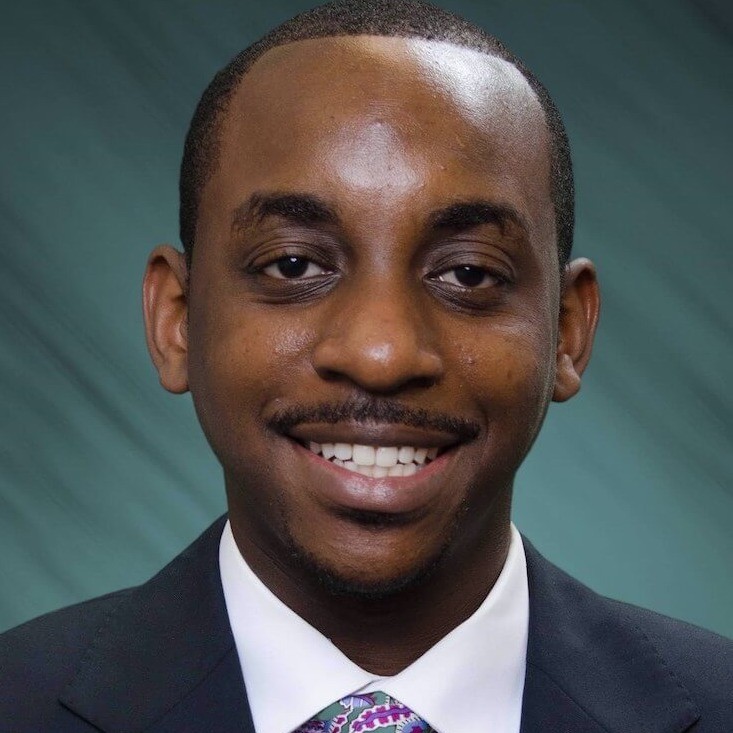What is your educational background?
I have studied in the United States all my life. I first got my B.S in Biology from Texas Christian University in 2014. In 2017 I completed a Masters in Healthcare Administration.
What is your current occupation?
I am the CEO of GEM Industrial Solutions Ltd. GEM is a Ghanaian owned and operated agri-tech service provider based in Accra. Leveraging drone technology & artificial intelligence, we provide services ranging from mapping and surveying to crop health assessments & stockpile volumetrics. In addition, we also provide extension services such as crop-counting and will be adding crop-spraying into our service model this year. The nature of these services is to allow local agri-stakeholders to make more informed decisions that will improve their yield and overall bottom line.
What or who got you into STEM?
I have always had an interest in technology but never necessarily envisioned I would form a business around it. What encouraged the effort was recognizing the pain-staking challenges local Ghanaian farmers were facing nationwide and understanding the global concern of food scarcity and climate change. So, I would say what got me into STEM was the niche opportunity to create a business model centered around sustainable solutions in agriculture.
What is the biggest challenge/barrier you have faced as an African in STEM?
With specific regard to our work, one of the challenges we have faced is the adoption of the technology by local farmers. We often find their knowledge on the capacities of drone technology to be limited making them skeptical of the value of our services. There’s also the misconception that our services are economically out of reach for rural farmers. But as an enterprise, it’s our obligation to educate and demonstrate otherwise, which is a challenge we gladly accept. More generally, as a young entrepreneur, a challenge is navigating the mentality of seniority in our culture. Often, as African youth, our capabilities are discounted due to the idea that only seniority begets wisdom. This has led to innovative aspirations by young individuals to be overlooked and branded as unrealistic. But it’s we the youth that hold the key to the future, so I for one refuse to allow such a challenge to deter me.
How do you think your background/upbringing has been beneficial in your journey/career?
I was fortunate to be raised in a home where Ghanaian culture was a focal point. This upbringing led to a strong sense of self as a Ghanaian and created a drive whereby I felt indebted to do something that would create true value for Ghana in the future. GEM was born out of this drive, so my cultural awareness has certainly played a major role in my entrepreneurial journey. I would be remiss to not also acknowledge the privilege I have as an American born Ghanaian. Having American status has allowed me to tap into resources beyond Ghana. It has also afforded me the mentality that with hard-work your dreams are always within reach. So, I certainly believe that my background and upbringing embody both the African spirit of strength and the American ideology of “pulling yourself up by the bootstraps”.
How do you think we can start to change the narrative surrounding African contributions
to global STEM research & careers?
I believe the effort of Visibility STEM Africa is a great start! I think we need to take control of how our narrative is shared and make a more concerted effort to showcase our work and contributions in STEM. By highlighting individuals who have made a successful leap into the world of STEM, others will be more encouraged to take on the challenges of the world that only STEM fields can solve.
What advice would you like to give to young, aspiring Africans in STEM?
I want to advise young and aspiring Africans in STEM to look upon the challenges present on our continent as an opportunity, not a barrier. Consider the fact that fin-tech innovations such as mobile money are being developed on the African continent before the Western world. Yet, the value of such an innovation is just as valuable to the Western world as it is to our continent. So, I encourage aspiring Africans in STEM to take on the bold leap of finding solutions to the challenges of the world. With focus, determination, and grit, you too can make a much-needed contribution.
Do you have any projects you’re working on that you would like us to highlight?
2020 is looking to be a promising year filled with intriguing projects we are impassioned to take on. One project we are strategizing is the ‘Drones in Malaria Project.’ Scientists in Tanzania have been working with drone sprayers to disperse environmentally friendly insecticides meant to reduce the number of malaria-borne mosquitos around rice paddies. The theory is that once the spread of the mosquito larvae has been controlled on a rice farm, the threat of malaria to the neighboring communities will be reduced. We are working to collaborate with these scientists to emulate the same project here in Ghana.
This has become a passion project due to the recent loss my friends and I faced. A close friend to many lost his sister to malaria at the tender age of 28. In a day and age where we nonchalantly refer to malaria like we do the common cold, we often forget that it is indeed a fatal disease. That said, this loss hit close to home for many. What makes this situation all the more unfortunate is the fact that this particular case was not due to a lack of access to treatment as is often seen in rural or impoverished communities. So, the question must be asked: if malaria can still take the life of someone who has the means to be treated in 2020, what needs to be done in rural communities where resources are limited? So, it is important that we continue to work on addressing this long-standing epidemic.
This project also brings an opportunity to coordinate research that could positively impact my father’s native community of Krobo. Krobo is located in the Eastern Region of Ghana and is neighbor to the Kpong Irrigation Scheme of Asutsuare, a large-scale rice farming scheme. Due to the nature of rice cultivation (water-body cultivation), historically, Asutsuare & neighboring communities have been heavily impacted by malaria. Our plan is to therefore introduce this pilot to the scheme in an effort to reduce the incidence of malaria transmission. The success of this project, even if small, could mean directly improving the lives & wellbeing of those in our rural communities. I would personally consider this a life achievement.






